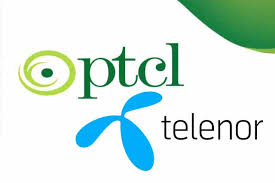The Competition Commission of Pakistan (CCP) on Tuesday gave conditional approval to Pakistan Telecommunication Company Limited’s (PTCL) $400 million acquisition of Telenor Pakistan (Pvt.) Ltd. and Orion Towers (Pvt.) Ltd., clearing one of the largest mergers in Pakistan’s telecom history. The decision, announced at a press conference at CCP headquarters, ends an 18-month-long review of the transaction, during which the regulator faced delays, incomplete disclosures, and political pressure but maintained a rigorous process.
CCP Chairman Dr. Kabir Ahmed Sidhu, flanked by Member Salman Amin, Registrar Shahzad Hussain, and Head of Legal Ambreen Abbasi, said the approval comes with stringent safeguards designed to prevent abuse of dominance, ensure fair competition, and pass efficiencies on to consumers. “This merger is a landmark case for Pakistan. We have ensured a level playing field for all operators while safeguarding consumer interests. The conditions imposed are comprehensive, forward-looking, and aligned with global best practices,” Dr. Sidhu told reporters.
The CCP imposed one of the toughest conditional approval frameworks in its history, drawing from precedents in the U.S., U.K., and EU. PTCL and the merged entity must have independent boards and management, with no individual allowed to serve on both entities and a three-year cooling-off period before switching roles. CEOs and senior management are required to have proven telecom and digital sector expertise, turnaround experience, and integrity, with performance benchmarked against KPIs such as network quality, efficiencies, and investment. To ensure compliance, a neutral Third-Party Reviewer will be appointed for five years to audit transactions and submit quarterly reports directly to CCP.
PTCL and the merged entity are barred from sharing sensitive commercial data, and all related party transactions must be conducted competitively and at arm’s length. Separate accounting is mandatory, verified by an independent auditor and reviewed quarterly. PTCL must also seek PTA’s approval for wholesale pricing of IP bandwidth, long-distance international services, domestic leased lines, and telecom infrastructure services, while predatory retail pricing is expressly prohibited. The merger conditions also mandate non-discriminatory interconnection access in line with PTA-approved Reference Interconnect Offers, with additional restrictions on decommissioning of BTS sites without PTA approval.
Further, the merged operator must provide fair access to mobile virtual network operators, demonstrate progress on 5G rollout, and comply with PTA tariff approvals. Consumer protection remains central, with PTCL and the merged entity required to substantiate that promised efficiencies such as service quality improvements, reduced duplication, and infrastructure investments are passed on to consumers. The CCP has also inserted a divestiture clause, giving itself the right to order the sale of assets or business segments if conditions are violated.
Once completed, the merger will create Pakistan’s second-largest operator, with Ufone–Telenor Pakistan nearly matching Jazz in market size and overtaking Zong. While this raises concentration risks, CCP officials said the conditional framework is designed to mitigate dominance while ensuring consumer benefits. “The safeguards are unprecedented. They directly address risks of favoritism, predatory pricing, and market foreclosure,” Member CCP Salman Amin said. “If enforced effectively, this merger can deliver efficiencies, service quality improvements, and significant cost savings.”
The review, one of the longest in CCP’s history, mirrors timelines of international telecom deals, such as Vodafone–Three UK, which took nearly 23 months, and Sprint–T-Mobile in the U.S., which required 22 months. Officials described the case as a litmus test for CCP’s independence, with the regulator resisting corporate and political pressure to fast-track approval. The Commission said it will remain vigilant, with quarterly compliance monitoring by the independent reviewer and continued oversight by CCP and PTA.
A CCP official acknowledged that the deal will create a highly concentrated operator, raising potential dominance concerns. “We also examined the risk of PTCL abusing its dominant position post-merger,” the official said. However, the regulator noted that its conditional approval framework, which includes safeguards on pricing, interconnection, infrastructure sharing, and fair competition, should mitigate those risks. “If enforced effectively, the merger could deliver efficiencies, improve service quality, cut infrastructure duplication, and generate cost savings,” the official added.




